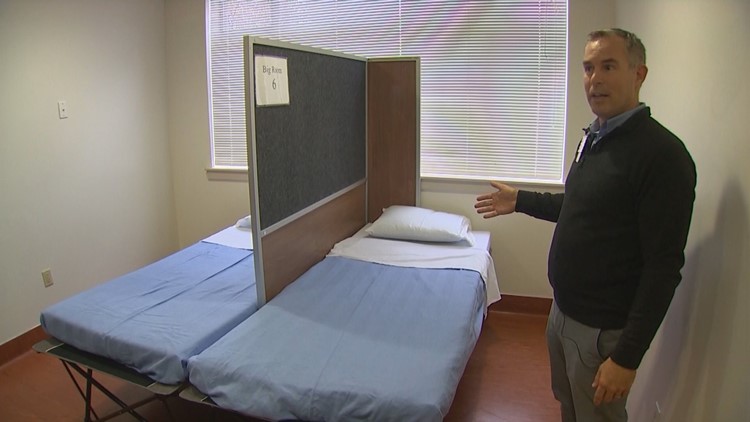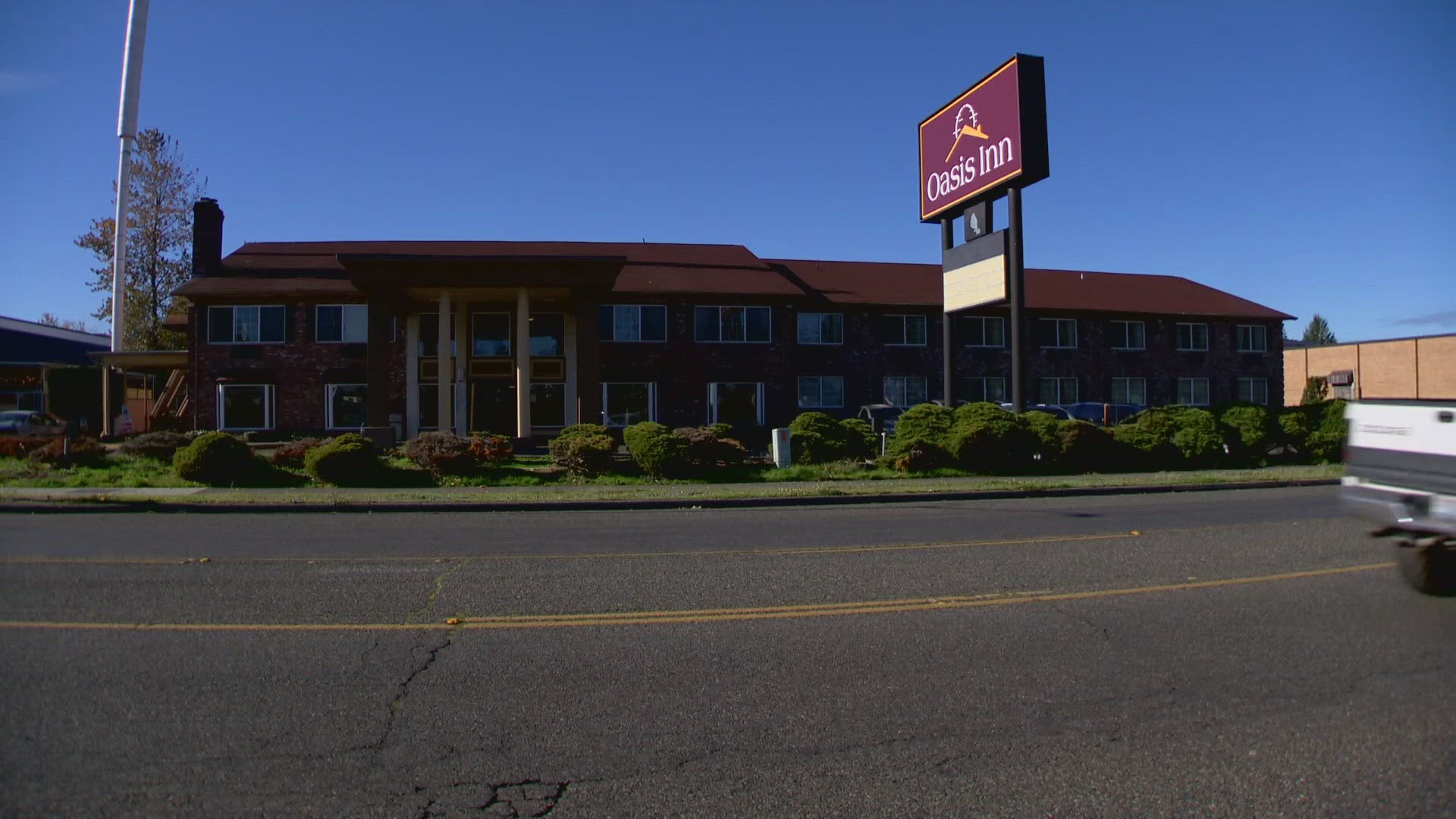SEATTLE — Home wasn't where Jon Weldon wanted to be.
His daily life consisted of sleeping in a parking garage, just off Madison Street, wedged in a spot against a parked car. It was the proximity that mattered, he said. That garage was a stone's throw from the Bailey-Boushay House in Seattle's Madison Valley neighborhood, which recently added an overnight shelter to become the first homeless shelter in the country that only serves people with HIV.
"I developed some problems associated with HIV," Weldon said Wednesday, recalling his life on the streets and bouncing between shelters over the past few years. "I stayed outside a lot because of the stigmatism I faced staying in shelter, being a gay man and taking medication," he said, noting how his background let to an assault in one of the city's shelters.
"The sad part was they were the ones that got to stay in the shelter," he said. "I had to leave, because I wasn't safe."
Weldon acknowledged Bailey-Boushay was his rock, the place where he would get out-patient treatment and shelter during the day. But every day, he'd return to that same parking spot to spend the night.
"Everybody in the program is HIV positive, so chronically ill. It's important they get access to health care," said Matt Williams, director of outpatient programs for the Bailey-Boushay House.
The facility, run by Virginia Mason Hospital, has roughly 400 clients, almost a third of which are homeless. This month, it started allowing some of those patients to use the facility as a shelter, thanks to an infusion of city funds.
Seattle Mayor Jenny Durkan's Path to 500 plan to increase emergency shelter by 25 percent through a one-time land sale allowed for Bailey-Boushay and others to open up their doors and fill them with cots and blankets. Bailey-Boushay had room for 50 beds to serve their most vulnerable clients. That meant getting creative.
Williams says that's meant converted meeting and physician space to rooms with cots and privacy dividers. They've also brought in storage units so homeless patients can store their personal belongings. It was the result of about $250,000 worth of funding from the deal that added over $6 million to creating shelter throughout the city.
Williams says currently there are 43 homeless clients being housed at the Madison Valley facility with room for more now that funding is also secured for next year. Will Lemke, a spokesperson for the City's Homelessness Response team, said there was funds to get this program up and running and the 2019 budget funding continues throughout all of next year.
The timing could not have been better for those clients, says Williams, given the change in the weather.
"Now we're able to keep people sheltered, warm and fed, so it's really improving their health," he said.
"It's now a safe place for people with HIV and AIDS that where they can come and be a part of a community," said Weldon.
He's now, finally, in the place he wanted to be all along. Weldon says he has transitioned out of homelessness into an apartment with a roof over his head and believes people in similar circumstances can do the same if given a chance.
"Now I can live on my own in an independent setting, and feel like a normal person," he said, noting the shelter is "something that Seattle should be proud of."



